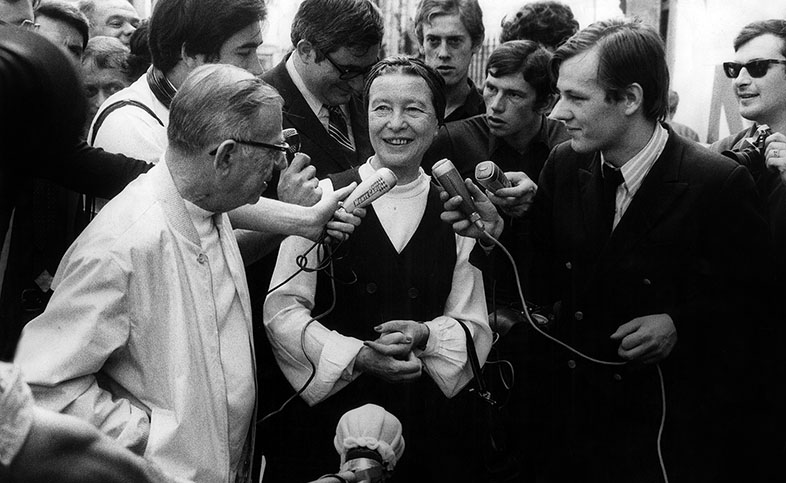1.3 What does it mean to be a woman?
Freedom is at the core of both Beauvoir’s and Sartre’s philosophies. For Sartre human beings are always free, and in particular free to self-create. If they blame their circumstances for their choices, rather than taking responsibility for them, they are in fact deceiving themselves, they are in ‘bad faith’. Bad faith is self-deception. For him, we always have a choice.

Beauvoir presents women as an oppressed category of people, who are shaped by their position in society to the point that often they do not even realise that they are oppressed. Are women for her as free as the general human being whom Sartre discusses? Or is there a difference between Sartre’s and Beauvoir’s respective ways of conceiving human beings and freedom? The philosopher Gary Gutting thinks that there is indeed a difference. Let us read what he says.
Activity 1 Gutting – French Philosophy in the Twentieth Century
Read the extract and answer the following questions.
What, Beauvoir asks, does it mean to be a woman? There two standard answers: Essentialists say that there is a female nature (the ‘eternal feminine’), while anti-essentialists (nominalists) say that there is no such thing, that women are just human beings, as men are, their ‘femininity’ merely an accidental characteristic no different from having red hair or being over six feet tall. We will not be surprised that Beauvoir rejects the essentialist view, which contradicts the fundamental existentialist claim that existence precedes essence, that the free choices of our consciousness determine what we are. In this sense, her famous formula ‘One is not born, but rather becomes, a woman’ (Le deuxième sexe II: 13/267) is for her, a philosophical platitude. But Beauvoir also rejects the anti-essentialist view: Being a woman is, at least in our world, not a casual fact, irrelevant to a person’s core identity - any more than is being Jewish or black or old. Nor is being a woman simply a matter of one’s own choice: precisely how you are a woman may be up to you, but the fact that you are a woman and that this fact makes a great deal of difference is imposed on you by your situation.
Here is clear that Beauvoir has moved beyond the simplistic existentialist view of freedom that is at least often suggested by [Sartre in Being and Nothingness]. On that view, being a woman could limit my freedom only to the extent that I chose it to be a limitation. Beauvoir, however, recognizes that some features of my situation may well be obstacles to my freedom no matter how I choose. It does not follow that such a feature must always be an obstacle: we can imagine a situation in which being a woman is of no more significance than having blue eyes. But the fact is that in the current historical situation, being a woman does restrict your freedom, no matter how you choose to live your life. This is a significant revision of the naïve existentialist conception of freedom (and… a revision Sartre himself later develops in [his Critique of dialectical reason]).
a.
There is no feminine nature; women do not share a way of being.
b.
There is a feminine nature that all women share.
c.
Women share in a general human nature, but do not have a specific feminine nature.
The correct answer is b.
a.
There is no such thing as a feminine nature, women are just human beings.
b.
Each individual woman has a different essence.
c.
There is a feminine nature that all women share.
The correct answer is a.
3. Why, according to Gutting and what you have studied so far in this course, is Beauvoir’s rejection of the essentialist view consistent with Sartre’s existentialism?
Answer
For Sartre, human beings have no essence that precedes their existence, actions and choices. Beauvoir’s view that there is no feminine essence, or feminine nature, is consistent with Sartre’s view, as nobody has an essence.
4. Why is her rejection of anti-essentialism a departure from Sartre’s existentialism?
Answer
Whereas Sartre thinks that we are free in every situation, Beauvoir thinks that the situation of being a woman in this historical moment limits women’s freedom, no matter what she chooses.
